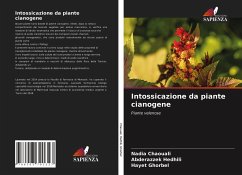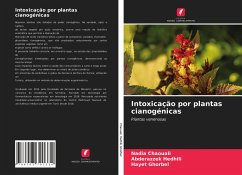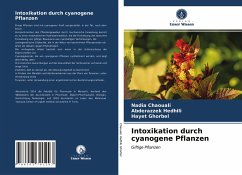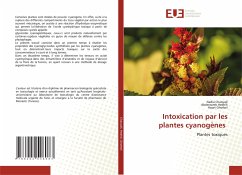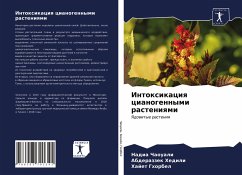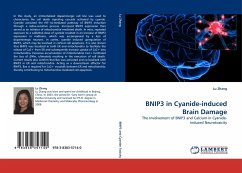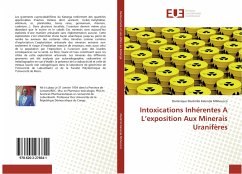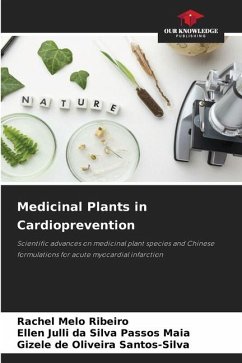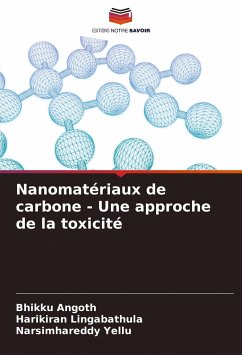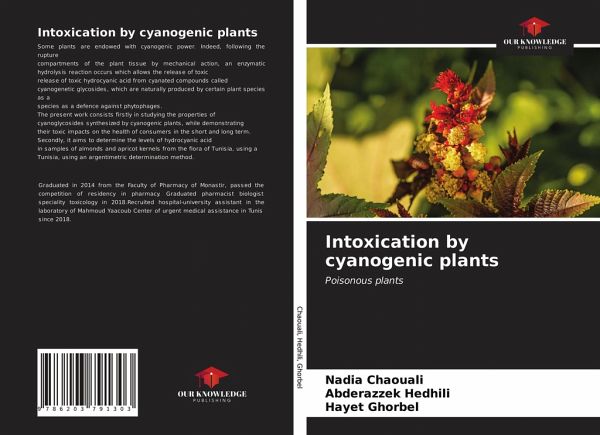
Intoxication by cyanogenic plants
Poisonous plants
Versandkostenfrei!
Versandfertig in 6-10 Tagen
36,99 €
inkl. MwSt.

PAYBACK Punkte
18 °P sammeln!
Some plants are endowed with cyanogenic power. Indeed, following the rupturecompartments of the plant tissue by mechanical action, an enzymatic hydrolysis reaction occurs which allows the release of toxicrelease of toxic hydrocyanic acid from cyanated compounds calledcyanogenetic glycosides, which are naturally produced by certain plant species as aspecies as a defence against phytophages.The present work consists firstly in studying the properties ofcyanoglycosides synthesized by cyanogenic plants, while demonstratingtheir toxic impacts on the health of consumers in the short and long term.Se...
Some plants are endowed with cyanogenic power. Indeed, following the rupturecompartments of the plant tissue by mechanical action, an enzymatic hydrolysis reaction occurs which allows the release of toxicrelease of toxic hydrocyanic acid from cyanated compounds calledcyanogenetic glycosides, which are naturally produced by certain plant species as aspecies as a defence against phytophages.The present work consists firstly in studying the properties ofcyanoglycosides synthesized by cyanogenic plants, while demonstratingtheir toxic impacts on the health of consumers in the short and long term.Secondly, it aims to determine the levels of hydrocyanic acidin samples of almonds and apricot kernels from the flora of Tunisia, using aTunisia, using an argentimetric determination method.
Some plants are endowed with cyanogenic power. Indeed, following the rupture
compartments of the plant tissue by mechanical action, an enzymatic hydrolysis reaction occurs which allows the release of toxic
release of toxic hydrocyanic acid from cyanated compounds called
cyanogenetic glycosides, which are naturally produced by certain plant species as a
species as a defence against phytophages.
The present work consists firstly in studying the properties of
cyanoglycosides synthesized by cyanogenic plants, while demonstrating
their toxic impacts on the health of consumers in the short and long term.
Secondly, it aims to determine the levels of hydrocyanic acid
in samples of almonds and apricot kernels from the flora of Tunisia, using a
Tunisia, using an argentimetric determination method.
Some plants are endowed with cyanogenic power. Indeed, following the rupture
compartments of the plant tissue by mechanical action, an enzymatic hydrolysis reaction occurs which allows the release of toxic
release of toxic hydrocyanic acid from cyanated compounds called
cyanogenetic glycosides, which are naturally produced by certain plant species as a
species as a defence against phytophages.
The present work consists firstly in studying the properties of
cyanoglycosides synthesized by cyanogenic plants, while demonstrating
their toxic impacts on the health of consumers in the short and long term.
Secondly, it aims to determine the levels of hydrocyanic acid
in samples of almonds and apricot kernels from the flora of Tunisia, using a
Tunisia, using an argentimetric determination method.



